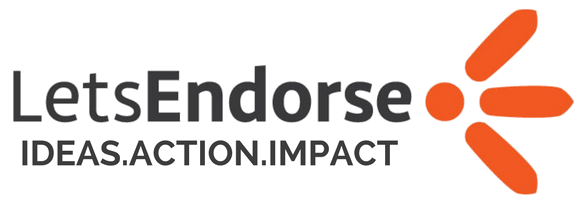According to World Bank Data, 65% of the Indian population lives in rural India. It is estimated that 75-90% of the working population in India is part of the rural economy. [1] 99% of India’s India’s MSME sector made up of 6.3 crore enterprises, are micro-enterprises. [2] Thus, any discussion on the growth of MSMEs in India cannot afford to overlook the micro-businesses of India. The sheer size of this sub-segment of MSMEs necessitates targeted initiatives to start them on the path to growth and success.
Local micro-enterprises are characterized as being unregistered, informal concerns that are run with the objective of survival and not growth. Businesses such as grocery stores, hair salons, electrical and repairing shops, medicine stores, garment stores, fruit and vegetable shops, cyber cafes, paint/hardware stores and vegetable/fruit shops that dot the landscape of the country come under this category. These firms are often run by individuals who are focused on generating just enough income to meet their household expenses. Typically, they are operating at such a small scale that they earn low returns overall irrespective of what their marginal profits are.
Programming such micro-businesses for success and connecting them with welfare measures will require an approach that is specifically tailored to their unique challenges and constraints. Their unmet needs are different from those of growing medium-sized MSMEs, stagnant MSMEs, and innovative start-ups. We must prioritize initiatives that are targeted to their needs. The three kinds of support that can enable crores of informal microbusinesses of India to overcome their barriers are lie in the areas of formalisation, access to credit and digital enablement.
Formalisation:
Lack of formalisation is the first and foremost barrier that prevents a business from accessing benefits and formal credit. A micro-entrepreneur who perceives formalisation as an expensive process that involves high costs of compliance and does not offer any benefits is likely to avoid it. Unless nudged otherwise, acquiring business registration, licenses, and tax registration is perceived as expensive by many. Making it easier to acquire registrations and highlighting the benefits provided upon registration could incentivise business owners to undergo formalisation. Under Project Udyamita, all the new micro-businesses that are set up are supported in acquiring their business registration, certificates, and licenses such that they are fully compliant with the law of the land. The recent success of the self-declaration based Udyam Portal in gaining 50 lakh+ businesses registered within 15 months of launch also underscores the benefits of making registrations easy, digital and hassle-free.
Access to Credit:
Banks are reluctant to lend to microbusinesses due to the perceived higher risk of these loans turning into Non-Performing Assets (NPAs). The high cost of accessing soft information about the borrowers, as well as monitoring and servicing loans of such small ticket sizes (<INR 10 lakhs ) also contributes to their reluctance. Micro businesses are spread across rural India and tier-3/tier-4 towns while bank branches are predominantly located in metropolitan areas which adds to the costs and inefficiency. One measure that encourages banks to lend to micro-enterprises is a credit guarantee scheme that reduces part of the risk for banks. However, there are other initiatives too that can strengthen the ecosystem and provide banks with a robust lead funnel of quality applicants thereby reducing their costs. Support in making micro-businesses who are prospective loan applicants adequately prepared with business plans, documentation, and answers for bank interviews would also go a long way in reducing costs and improving efficiency. Our initiative, Project Udyamita improves ease of access to credit for micro-enterprises and links them to banks by following this method as part of it’s 360-degree enablement model.
Digital Platforms:
Over half the Indian population is now online. Digital platforms could be instrumental in easing some of the barriers to the growth of Indian microbusinesses. For instance, an easy-to-use platform that provides personalised information about all the government schemes an individual is eligible for, the required documents and the process in one place could make it easier for people to access government schemes. The platforms could also provide linkages to markets and financial institutions along with other benefits.
Small and medium-sized MSMEs stand to benefit from entrepreneurial education and awareness, scale-up programs, technology adoption and other such initiatives but the informal micro-business need support in the basics. Easing formalisation, improving access to credit and providing access to information on digital platforms are the initiatives that should be prioritised to prepare the ground for any other form of enablement. These initiatives may seem straightforward on paper but they demand strong implementation models to take them to businesses spread across the length and breadth of the country. Being able to reach the unreached in villages and towns will be made possible with the help of technology as well as the government machinery from the national to the local level.
1. theigc.org/project/informal-workers-and-labour-market-risk-during-covid-19-in-india/
2. https://www.financialexpress.com/industry/sme/msme-other-indias-msme-sector-swells-adds-these-many-enterprises-in-fy20-micro-businesses-dominate/1906979/


